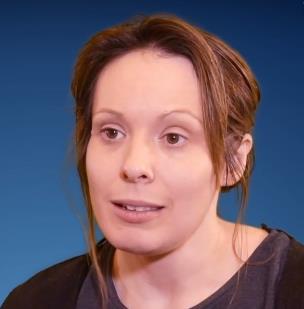Venetoclax is the culmination of a research discovery made in Australia's Walter & Eliza Hall Institute in 1989. Dr Mary Ann Anderson is one of only a few researchers who has seen their work in the lab translate to a frontline therapy for blood cancer.
“Venetoclax targets a protein which is overexpressed in cancer cells but not in normal cells,” said Dr Anderson, a haematologist and clinician scientist at the Royal Melbourne Hospital, Walter & Eliza Hall Institute and Victorian Comprehensive Cancer Centre.
:
We chatted to her at the Leukaemia Foundation’s Blood Cancer Conference in Melbourne in October 2018 about her involvement in pioneering the drug, venetoclax (Venclexta®) as a breakthrough treatment for CLL.
This drug causes the cancer cells to melt away without causing too much toxicity and has none of the side-effects of traditional chemotherapy.
“We see 80% of patients, whose disease has relapsed after previous treatment or is refractory, actually respond to venetoclax and many of these patients have had years of good quality life that they wouldn’t have otherwise had,” said Dr Anderson.
Questions answered by Dr Anderson in this 6 minute video are:
- What is CLL?
- What is the biggest breakthrough in your field in the last decade?
- When can we expect to see the next big breakthrough?
- How important is it for people with blood cancer to learn about their disease?
- Is the trend in treating CLL moving toward combination therapy?
- What is the most common question you are asked?
(Q - Why did I get CLL? A - It's just bad luck, nothing you did).
leukaemia.org.au/media-cent...
In related news, with thanks to Dennis, who posted this news about how resistance to 'The breakthrough drug venetoclax' can be countered in the CLL/SLL Groups.io forum -
Resistance to Targeted Leukemia Drug Lurks in Cells’ “Powerhouse” blog.dana-farber.org/insigh...
This is an unlocked post: healthunlocked.com/cllsuppo...
Neil
